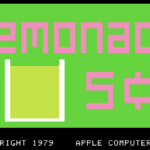
Flipboard interlude (2011-2013)
All in-depth articles about my Apple career:
- How I ended up at Apple (1999)
- AppleCare (1999-2000)
- Mail team (2000-2004)
- Aperture: Senior QA (2004-2005)
- Eye Candy QA (2005-2011)
- Flipboard interlude (2011-2013)
- Calendar and Contacts (2013-2015)
- SwiftUI (2015-2016)
- Watch Hardware (2016-2017)
- Eye Candy QA (2018-2019)
- Why I left Apple (2019)
Seed planted
My good friend Evan Doll left Apple around 2010 to co-found Flipboard, a very popular iPad application that was essentially a better version of Apple News (sorry Apple) with deep social integration.
It seemed like every six months or so, Evan would ping me and try to entice me to try out Flipboard. But I was happy where I was, working on the Eye Candy team. I was getting a little itchy, though, so his offer was always in the back of my mind.
Departure from Apple
I left Apple on July 1st, 2011. My initial plan was to take a bunch of time off, maybe six months, and then figure out what to do next. About three months into that, Evan contacted me again. I had neglected to let him know I left because I was focused on my time off.
Evan gave me an offer that was impossible to refuse. Flipboard had no dedicated QA engineers, so I could have a lot of influence. They were hard at work on the first iPhone version of Flipboard. I would be given total freedom in how I did my job. I could set my own hours and decide how much I wanted to work.
Let’s just say Evan knew how to entice me well.
Flipboard upside
I joined Flipboard as a contractor in late 2011 and worked basically half-time. Sometimes I worked at home, but I preferred going into the office.
The office was a fun, open space. A beehive of activity. The designers were right next to the engineers and would sometimes just call out to each other. Little bureaucracy was present. Just like any small company, many things were spontaneous and unregimented.
Flipboard was very well funded, which was a welcome change from several other startups I had been involved in. It’s nice not to be continually raising money or worried about running out of cash.
Despite the chaos, it was also a very calm place and there was time and space to think. Flipboard had all the good things that a small company has.
Flipboard for iPhone was a really fun challenge for everyone involved. It was more challenging than the original iPad version, as there was much more screen real estate to work with. They went through many radically different iterations and I was happy to have my input taken into account.
I’m very proud of the final product and the part I feel I played in it. Since I was part-time and not a designer or engineer, it was a small part, but compared to the type of effect I could have on a product at a large company, it was really nice.
To top it off, customers really loved the product and the quality of the product was very high. It’s not often you get a chance to work somewhere where both of those were true.
Flipboard downside
Small companies inherently have downsides and Flipboard had these as well as some unique to itself.
The biggest problem I had working there was that I felt that what we were doing was so small. Just one app with a server backend. Sure, it could improve people’s lives, but just at a scale that was disappointing. Even if the customer base grew 1,000 times bigger, I didn’t feel the impact on the world was going to be that great.
Like many startups, everyone was quite young. At 41, I felt like the oldest person there sometimes, and certainly well above average. I think it’s a problem when any company doesn’t have enough senior talent to help the younger team members learn from the mistakes of the past.
The environment, while fun at times, grated on you after a while. Even with $500 headphones, it was hard to concentrate. It’s not unlike the current situation at Apple Park, with 30 or more people all in one large room. Flipboard was worse in that it was a big, echoey warehouse.
The biggest problem I had was that I wasn’t one of those dedicated, loving customers of the Flipboard app. I appreciated the design and quality of it, but it turns out I’m just not much of a newsreader or sharer of stories. I didn’t know this going in, but it was an unfortunate realization!
This was an important thing to learn about myself in that I find it very hard to work on something I don’t use regularly.
Scott Forstall interlude
One day I was working at Flipboard, in the path from the front door to the lunch area, also used as a meeting room sometimes. Out of the corner of my eye I thought I saw Scott Forstall come in. This is primarily because that’s who it was.
Intrigue!
What was he doing there? Was Apple looking at Flipboard? Was Apple News already in the works? This was in 2012 so it’s hard to say for sure. I felt like I was almost hiding from him and I succeeded in him not seeing me. I felt guilty for leaving Apple. It was just an odd experience.
Why I went back to Apple
Many comparisons of Flipboard to Apple simply aren’t fair. Small companies are different than big companies. Single product companies are different than many product companies. Old companies are different than new companies.
But those comparisons mattered to me, whether they were fair or not. Unless Flipboard massively enhanced its product scope, grew its customer base by orders of magnitude or moved into new areas, it simply couldn’t have the same impact as a company like Apple. It’s a tradeoff. Either you have less influence at a more influential company or more influence at a less influential one.
I loved that Apple made so many products and they encouraged people to contribute feedback to any of them. So, while at Flipboard I worked on one product. At Apple, I could work on hundreds.
I love working with young people, but I wanted to work with people with more age diversity. For many people at Flipboard, it was the first engineering job they ever had. They were all very smart people that any company would be glad to have. But they didn’t have the senior talent—the “holy shit that person is a genius” kind of people that Apple is blessed with.
So, that’s why I went back to Apple. It was not an easy decision at all as I was always very impressed with Flipboard and I thought they were in a niche that they could continue to dominate.
Lessons learned
I like to tell people about my Flipboard experience because I think everyone who works at a big company should try a small company someday. And vice versa. Something will eventually speak to you, but you have to try it first. I started with small companies, then jumped to Apple, then Flipboard, then back to Apple.
For new graduates, I tend to encourage them to hold off on the sexiness of startups and go work at a respected, established company like Apple for 3-5 years. I know, it sounds like an eternity!
But you will learn so much. Like how to work on large cross-functional projects and teams, how to use complex tools, how to pick your battles, how to interact with people of all different personality types, and how to ship products. Big companies ship products. Small companies sometimes never do.
It will also open doors for you. Having a respected company on your resume will make you more valuable when you find that wonderful startup you want to try out. You’ll have deep experience that you can apply to your new job.
I wish I had listened to my own advice here! Instead of floundering at a series of startups for 3 years (which all went bankrupt), I could’ve been getting much more experience.
Conclusion
I remember my time at Flipboard very fondly and I always wished it resonated with me more than it did. I loved the people there and it was a wonderful product people loved.
I wouldn’t rule out a startup again, but it would have to be the right product. Something that I think might have a small impact now, but eventually a huge impact later, perhaps as a part of being purchased by a larger company.
I also like the idea of working for a non-tech company but contributing my technical skills. Something that has a lot of meaning but needs the tech talent to make it work.
So, maybe a final bit of advice is if you love technology and/or you’re a computer science major, it doesn’t mean you have to work at a tech company. Work somewhere that has impact and can use your skills to have even more impact.
I always use a company like Kiva as an example. It started very small with a very small impact. It’s not technically a tech company, but without technology, it could never have grown into having the huge impact it has today. There are many other companies like that out there.

